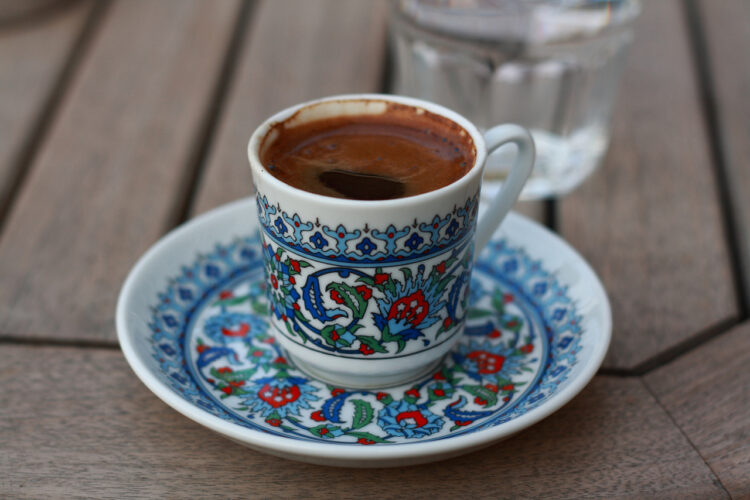Turkish Coffee War & Empire
In the bustling bazaars of Istanbul, the aroma of freshly brewed Turkish coffee fills the air, enticing travelers and locals alike. Beyond being a mere beverage, Turkish coffee carries with it a rich history, entwined with tales of mystery, war, romance, and the rise and fall of empires.
Legend has it that Turkish coffee’s origins date back to the 16th century during the reign of Suleiman the Magnificent, the Ottoman Empire’s illustrious sultan. It is said that the sultan’s court alchemist stumbled upon the curious beans during his travels through the far reaches of the empire. Intrigued by their enchanting aroma, he roasted and ground them, brewing the first ever cup of Turkish coffee. Soon, the exotic elixir spread like wildfire, captivating the hearts of the Ottoman elite and eventually finding its way to the common folk.
“Coffee should be black as hell, strong as death, and sweet as love.1” -Turkish proverb
As the coffeehouses began to emerge, they quickly became social hubs, where discussions ranged from politics to art, and secrets were exchanged in hushed tones. Turkish coffeehouses turned into centers of intellectual exchange, where scholars, poets, and philosophers gathered to exchange ideas and debate the issues of the day. It was a place where stories were born and shared, and where the seeds of revolution were sown.
In the midst of this vibrant atmosphere, love and romance often bloomed over cups of the dark, aromatic brew. It became a tradition for young men to court their beloveds by sending them a cup of Turkish coffee, laced with a message hidden in the grounds. The message, a sweet declaration of love or a poetic verse, would be revealed as the coffee dregs settled at the bottom of the cup, leaving the recipient with a flushed face and a fluttering heart.

But the history of Turkish coffee is also tinged with tales of war and conquest. As the Ottoman Empire expanded its dominion, Turkish coffeehouses sprouted up in the newly acquired territories, becoming symbols of Turkish culture and influence. These coffeehouses often served as gathering spots for military strategists and commanders, where plans were drawn, alliances were made, and wars were won.
As the centuries passed, the Ottoman Empire waned, but the tradition of Turkish coffee endured. It survived revolutions, invasions, and upheavals, weaving itself into the fabric of Turkish identity. Even as empires fell and borders shifted, the art of brewing Turkish coffee remained a cherished cultural heritage, passed down from generation to generation.
Turkish coffee probably was brought in the Ottoman Empire by traveling merchants by the 15th century. The governor in charge of Yemen, Özdemir Pasha, may have officially introduced it to Sultan Suleiman the Magnificent, who popularized it. Under the strictest interpretations of the Quran, the strong coffee was considered a drug and its consumption was forbidden. Murad IV outlawed coffee, but due to the immense popularity of the beverage, the prohibition was eventually lifted.
Turkish coffee culture had reached Britain and France by the mid to late 17th century. The first coffee house in Britain was opened by an Ottoman Jew in the mid 17th century. In the 1680s, the Turkish ambassador to France reportedly threw lavish parties for the city’s elite where African slaves served coffee to guests in porcelain finjans on gold or silver saucers.
Today, the enchanting brew continues to hold a special place in Turkish society. The centuries-old tradition of coffee reading, or tasseography, persists, where fortune tellers decipher the patterns left by the coffee grounds to predict one’s future. The coffeehouses of Istanbul still echo with lively conversations, and the age-old customs of courtship over coffee endure, a testament to the enduring power of this magical elixir.
In Turkish coffee, one can taste the history of a nation and the echoes of empires long gone. It is a symbol of unity and community, a drink that brings people together, transcending time and borders. As travelers sip on their cups of Turkish coffee, they partake in a centuries-old tradition, becoming part of a story that weaves together mystery, war, romance, and the rise and fall of an empire.
